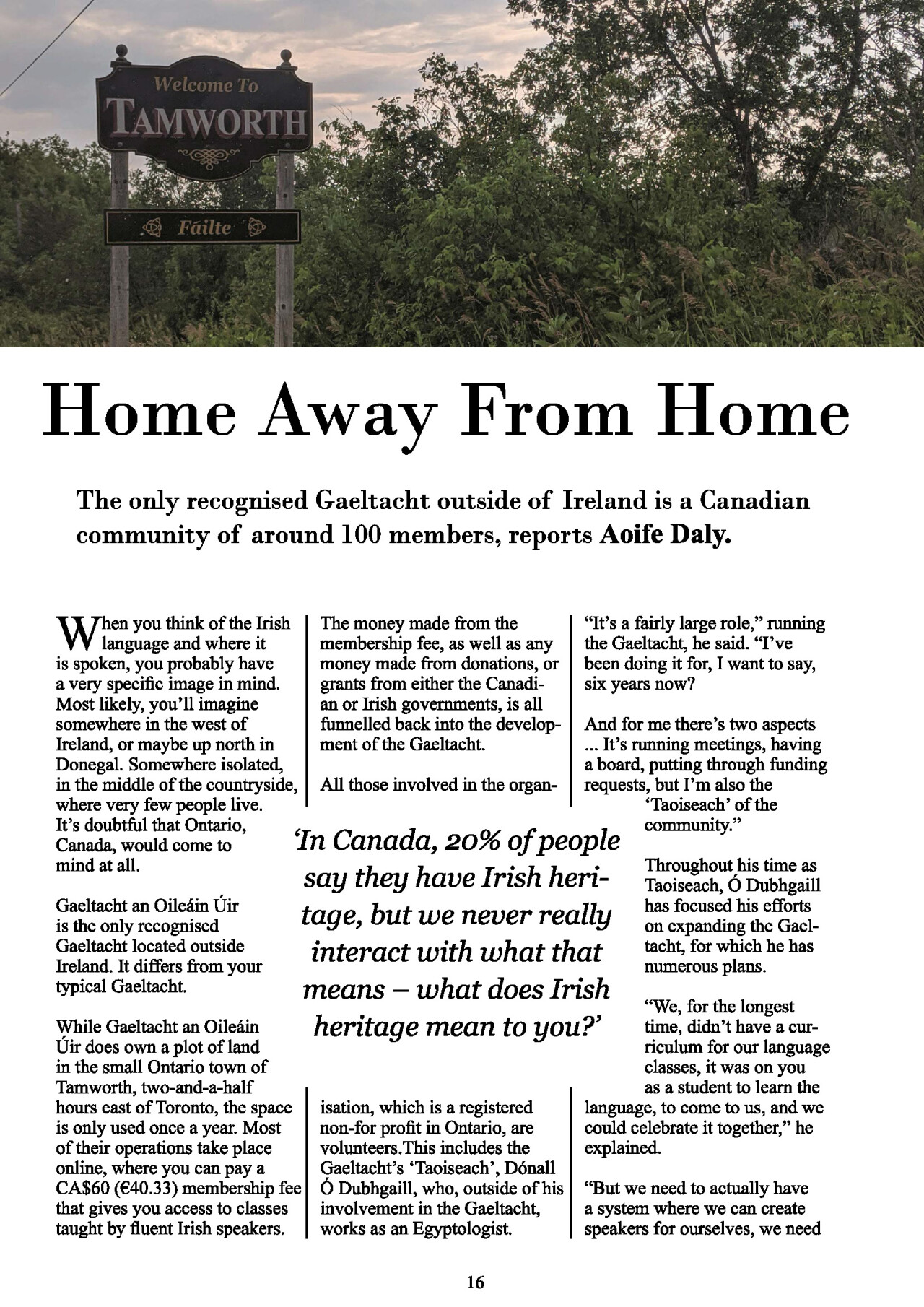
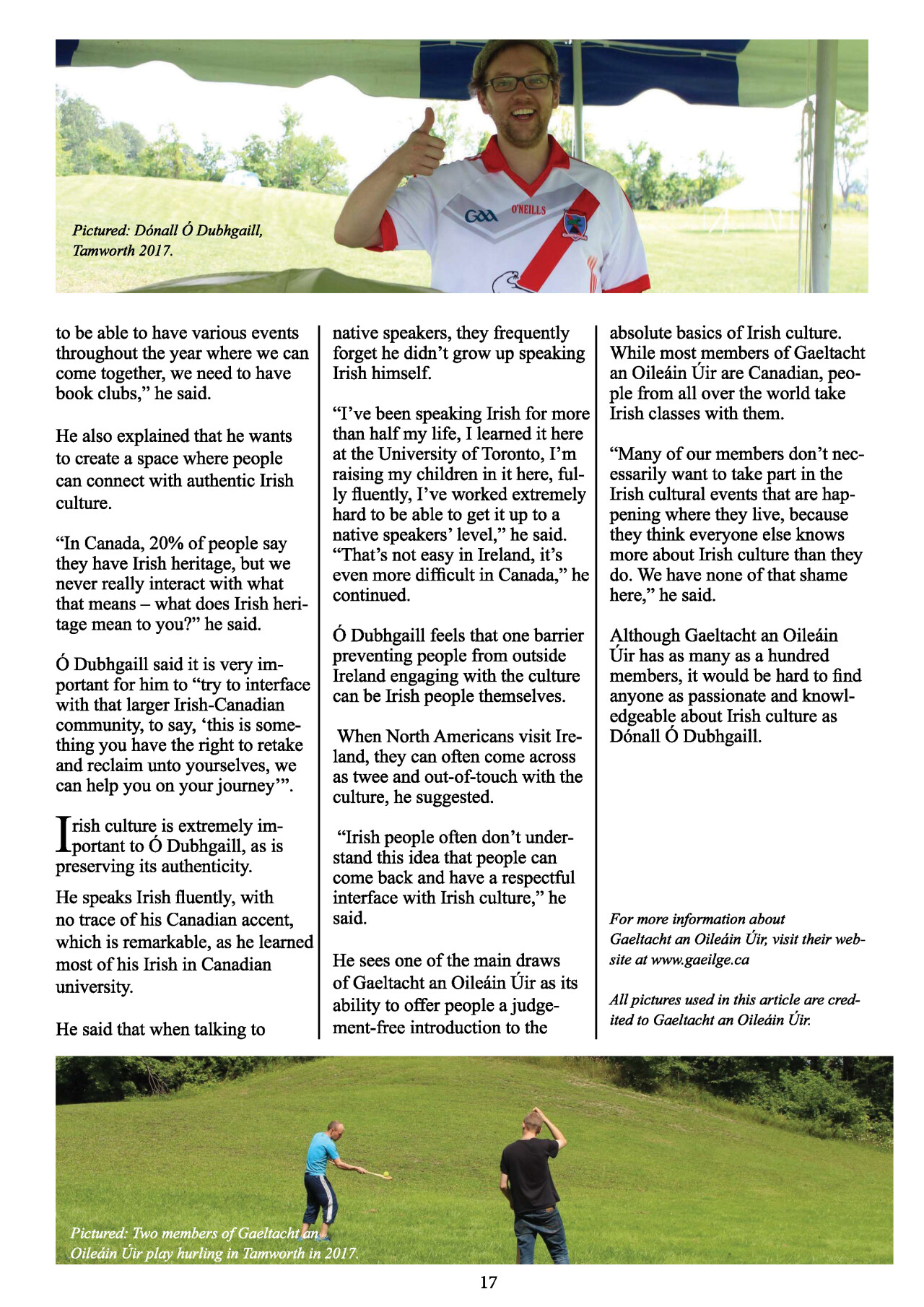
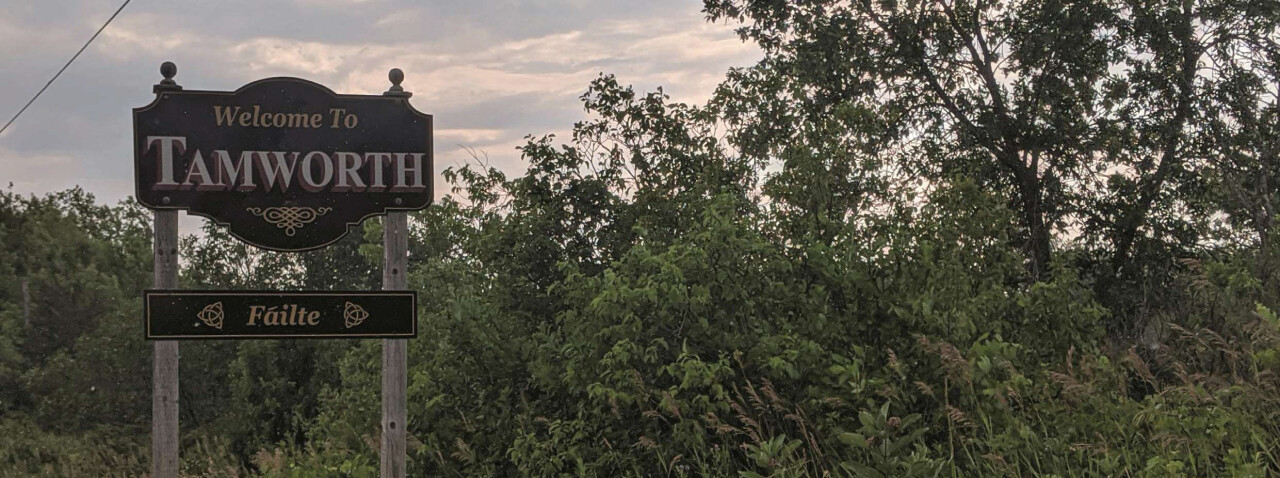
Aoife Daly is the Editor in Chief of Currently, which was awarded Magazine of the Year at the 2024 National Student Media Awards. Her two articles ‘Home Away From Home’ and ‘Do You Know What You’re Voting For?’ look at Gaeltacht an Oileáin Úir, the only recognised Gaeltacht outside of Ireland, and why young people should be interested in the upcoming European Elections.



When you think of where the Irish language is spoken, you probably have a very specific image in mind. Most likely, you’ll imagine somewhere in the west of Ireland, or up north in Donegal. It’s doubtful that Ontario, Canada, would come to mind at all.
Gaeltacht an Uileáin Úir is the only recognised Gaeltacht outside of Ireland. It differs from your typical Gaeltacht.
The money made from the membership fee, as well as any money made from donations, or grants from either the Canadian or Irish government, is all funneled back into the development of the Gaeltacht.
All those involved in the organisation are volunteers, including the Gaeltacht’s ‘Taoiseach’, Dónall Ó Dubhgaill, who, outside of his involvement in the Gaeltacht, works as an Egyptologist.
“It’s a fairly large role,” running the Gaeltacht, he said.
“For me, there’s two aspects… It’s running meetings, having a board, putting through funding requests, but I’m also the ‘Taoiseach’ of the community.”
Throughout his time as Taoiseach, Ó Dubhgaill has focused his efforts on expanding the Gaeltacht, for which he has numerous plans.
“We, for the longest time, didn’t have a curriculum for our language classes, it was on you as a student to learn the language, to come to us, and we could celebrate it together,” he explained.
“But we need to actually have a system where we can create speakers for ourselves, we need to have various events throughout the year where we can come together, we need to have book clubs,” he said.
He also explained that he wants to create a space where people can connect with authentic Irish culture.
“In Canada, 20% of people say they have Irish heritage, but we never really interact with what that means – what does Irish heritage mean to you?” he said.
Ó Dubhgaill said it is very important for him to “trt to interface with that larger Irish-Canadian community, to say ‘this is something you have the right to retake and relearn unto yourselves, we can help you on your journey.”
Irish culture is incredibly important to Ó Dubhgaill, as is preserving its authenticity.
He speaks Irish fluently, with no trace of his Canadian accent, which is remarkable, as he learnt most of his Irish in Canadian university.
Although Gaeltacht an Oileáin Úir has as many as a hundred members, it would be hard to find anyone as passionate and knowledgeable about Irish culture as Dónall Ó Dubhgaill.
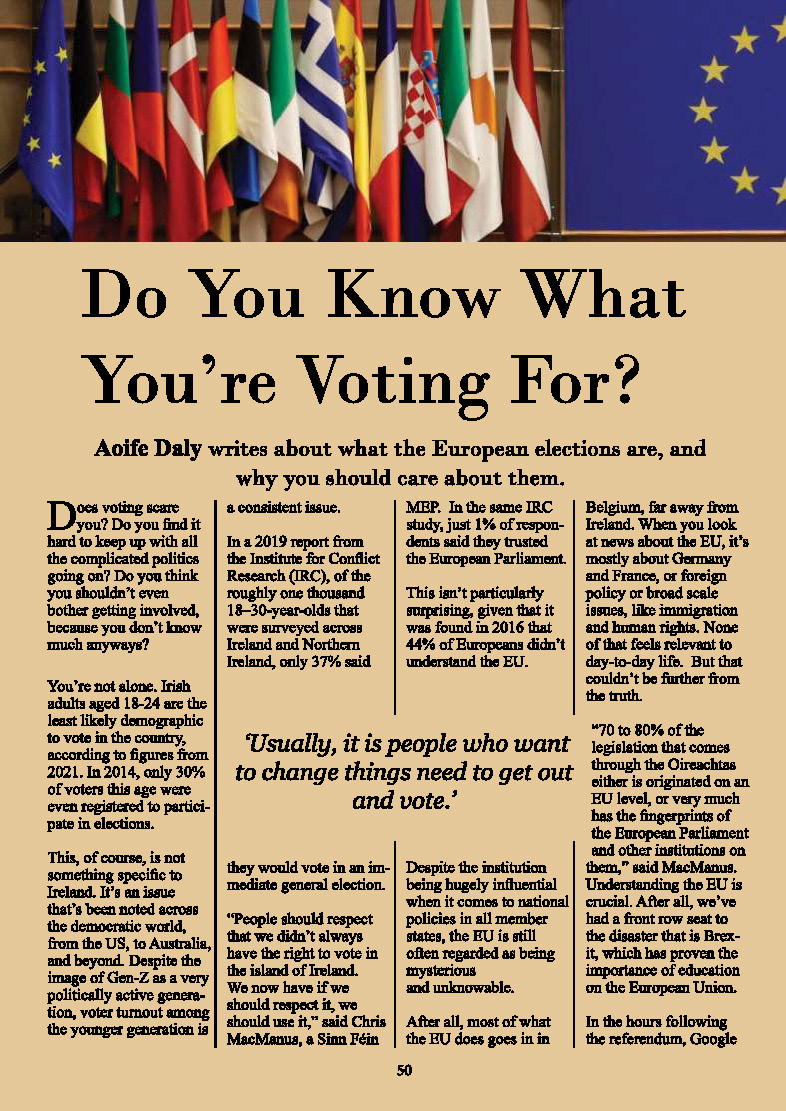
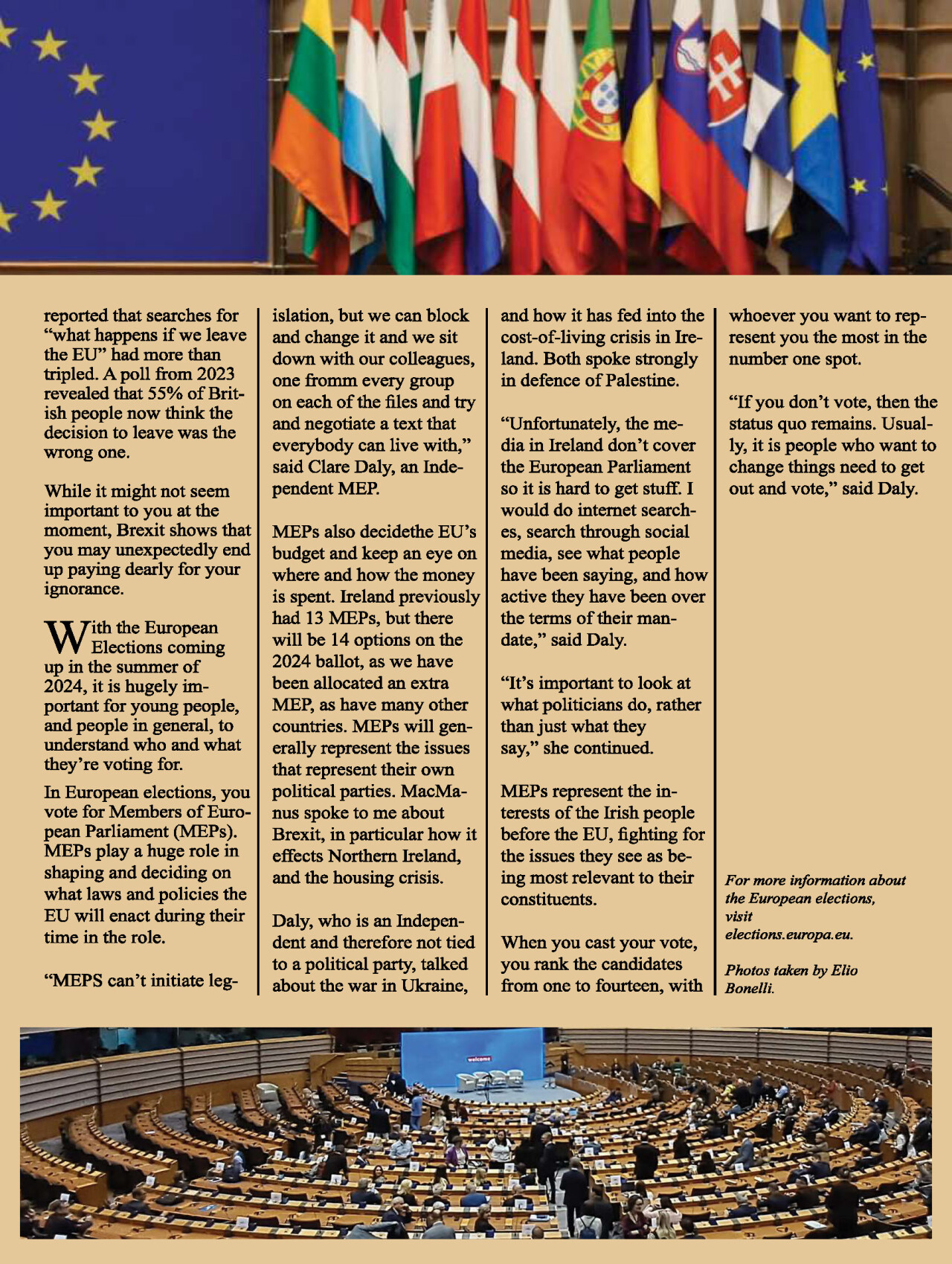
Does voting scare you? Do you find it hard to keep up with all the complicated politics going on? Do you think you shouldn’t even bother getting involved, because you don’t know much anyways?
You’re not alone. Irish adults aged 18-24 are the least likely demographic to vote in the country. In 2014, only 30% of voters this age were even registered to vote.
This, of course, is not something specific to Ireland. It’s an issue that’s been noted across the democratic world.
In a 2019 report from the Institute for Conflict Research (IRC), of the roughly one thousand 18-30-year-olds that were surveyed across Ireland and Northern Ireland, only 37% said they would vote in an immediate general election.
“People should respect that we didn’t always have the right to vote in the Island of Ireland. We now have it, we should respect it, we should use it,” said Chris MacManus, a Sinn Féinn MEP.
In the same IRC study, just 1% of respondent’s said they trusted the European Parliament.
This isn’t particularly surprising, given that it was found in 2016 that 44% of Europeans don’t understand the EU.
Despite the institution being hugely influential when it comes to national policies in all member states, the EU is still often regarded as mysterious and unknowable.
After all, most of what the EU does goes on in Belgium, far away from Ireland. When you look at news about the EU, it’s mostly about Germany and France, or foreign policy and broad scale issues, like immigration and human rights. None of that feels relevant to day-to-day life. But that couldn’t be further from the truth.
“70 to 80% of the legislation that comes through the Oireachtas either is originated on an EU level, or very much has the fingerprints of the EU parliament and other institutions on them,” said MacManus.
Understanding the EU is crucial. After all, we’ve had a front row seat to the disaster that is Brexit, which has proven the importance of education on the European Union.
In the hours following the referendum, Google reported that the searches for “What happens if we leave the EU,” had more than tripled. A poll from 2023 revealed that 55% of British people now think the decision to leave was the wrong one.
While it may not seem that important to you at the moment, Brexit shows that